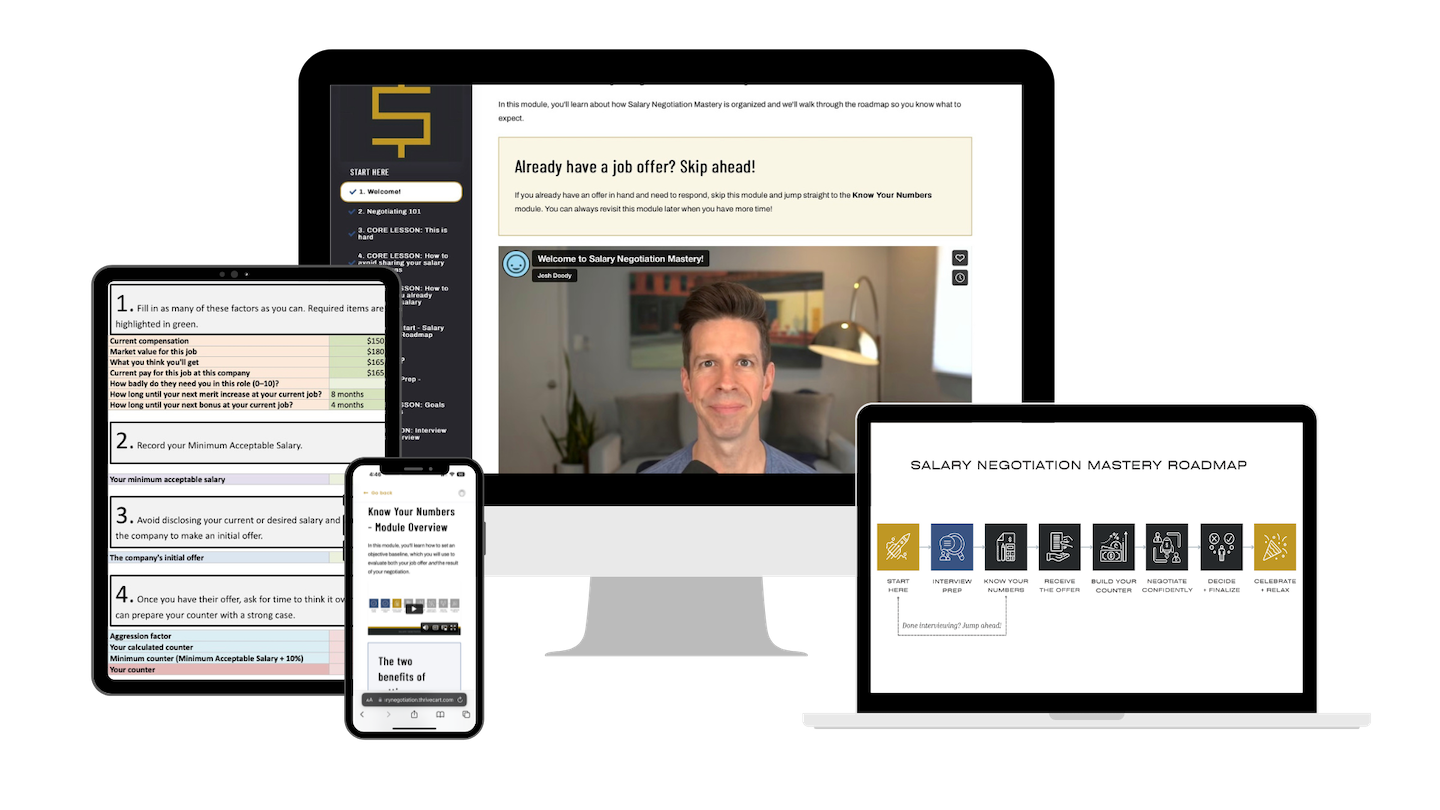Interview prep
Why “What's your greatest weakness?” is a dumb interview question
...and how to answer it
by Josh Doody
It’s the interview question that strikes fear into the hearts of job candidates everywhere: What if they ask me about my greatest weakness?! What will I say? Do I lie? WHAT DO I DO???
Three bad answers for “What’s your greatest weakness?”
This is a dumb interview question because it just stresses you out and forces you to do one of three things:
1. Lie
Pretty much everyone considers answering, “Well, I don’t have any weaknesses that I can think of.”
The problem is that this is a lie and we all know it. I have weaknesses. You have weaknesses. Everyone has weaknesses.
So nobody buys it when you say, “I don’t have any weaknesses.” and that means this isn’t a feasible answer even though it’s the one we all want to give.
2. Tell them your greatest weakness
Ok, but just because there’s not an easy answer doesn’t mean it’s a bad question, right?
The problem is if you’re trying to impress someone who will pay you a lot of money to do a challenging job, telling them, “Here’s something I’m really bad at!” will probably work against you.
Saying something hurtful about yourself in front of a stranger who may offer you a job might possibly backfire, right?
3. Spin one of your assets into a “weakness” in a transparent way that doesn’t fool anyone
That leaves us with the third terrible option, which is to pretend one of your strengths is a weakness.
“I care too much.”
“I work too hard.”
“I try to solve customers’ problems even at my own expense.”
Blech. Just typing those made me feel a little nauseated, and I bet you rolled your eyes too 🙄
You don’t buy these answers and neither will they.
Candidates - How to answer “What’s your greatest weakness?”
Even though this is a dumb question, you have to answer it. (The alternative is to refuse to answer, but that won’t go over well.) And of course you want to answer honestly without disqualifying yourself.
So here are three things to consider when answering “What’s your greatest weakness?”:
- Be honest—think of an actual weakness. It will be hard to discuss this if you make something up.
- Choose a weakness that will not directly conflict with your ability to do this job.
- Describe how you mitigate this weakness.
Here’s an example of a good answer to this question that checks all three boxes above:
“I’ve thought about this a lot and I often struggle with impatience and appearing intimidating to my coworkers because I want to appear knowledgeable. But that’s one reason I’m interested in working with this team. I know everyone here is knowledgeable without being pretentious about it, and I can both learn from them and share things with them.”
That’s a pretty good way of acknowledging a weakness—that you might sometimes overcompensate and seem a little harsh—while also identifying that this shouldn’t be an issue with this particular team because you won’t need to overcompensate to impress this group.
It also shows that you’re self-aware and conscientious, and those are good qualities to have.
Employers - What to ask instead of “What’s your greatest weakness?”
Please stop asking this question. Spend some time thinking about the job and what you’re looking for. You’re about to spend a lot of money to solve a problem or overcome a challenge in your business—ask the candidate a question that will help you understand whether they’re the right person to help you with those business objectives.
If you must ask about weaknesses, try to ask a more specific question that will actually help you learn about the candidate you’re considering.
“Tell me about a time you made a mistake at a previous job, and describe what you did to resolve it.”
That’s a first-cousin of the “greatest weakness” question, and it will actually yield helpful answers that will inform your hiring decision.
Learn more “Do you have any questions for me?” Make sure you do!

